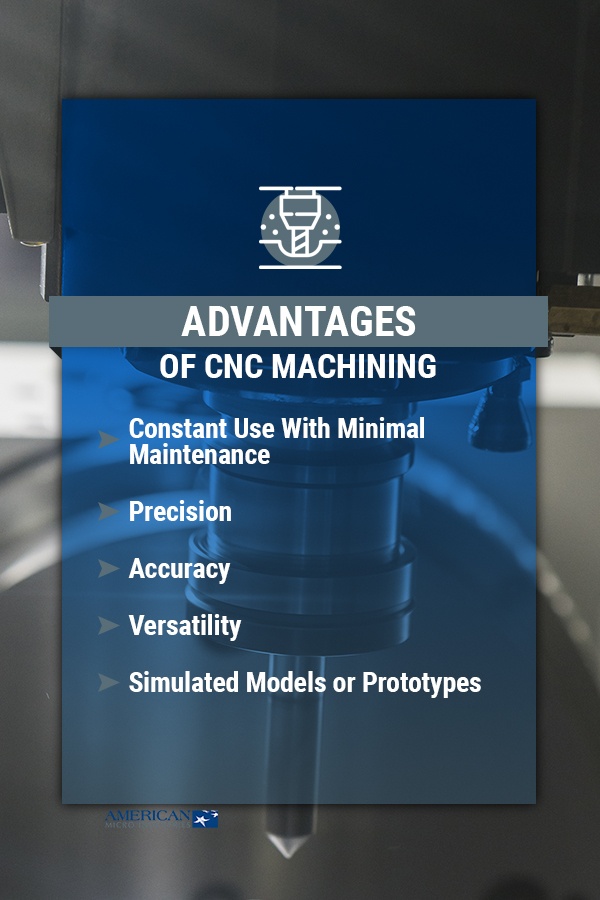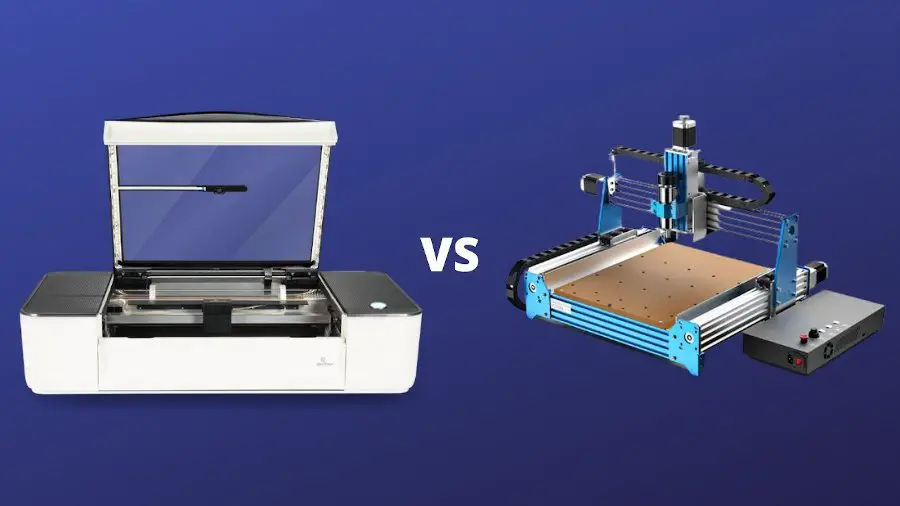Table of Contents
CNC machining has revolutionized the manufacturing industry by providing precision and accuracy at a faster rate. However, like any technology, it has its advantages and disadvantages. In this article, we will explore the pros and cons of CNC machining, so you can make an informed decision about whether it is right for your business needs.
On one hand, CNC machining offers increased efficiency, accuracy, and flexibility, making it a cost-effective and reliable option for mass production. On the other hand, it requires a significant investment in equipment and training, and may not be suitable for small-scale or custom manufacturing. Join us as we delve deeper into the advantages and disadvantages of CNC machining.
Pros and Cons of CNC Machining
CNC machining offers precision and repeatability, making it ideal for large production runs. It also reduces labor costs and can operate 24/7. However, it requires significant upfront investment and may not be suitable for smaller production runs or one-off projects. CNC machines also require skilled operators and ongoing maintenance.
Pros and Cons of CNC Machining
CNC machining, or computer numerical control machining, is a manufacturing process where pre-programmed computer software controls the movement of factory tools and machinery. CNC machining has revolutionized the manufacturing industry, but it also has its pros and cons. In this article, we will discuss the advantages and disadvantages of CNC machining.
Pros of CNC Machining
CNC machining provides a number of benefits, including:
Precision
CNC machines are incredibly precise, and they can produce parts and products with a high degree of accuracy. This precision is particularly important in industries where even the smallest mistake can have serious consequences, such as aerospace and medical device manufacturing.
Speed and Efficiency
Because CNC machines are automated, they can operate around the clock without the need for human intervention. This means that they can complete tasks much more quickly and efficiently than traditional manufacturing methods.
Flexibility
CNC machines can be programmed to produce a wide range of products and parts, making them incredibly versatile. Additionally, they can be quickly reprogrammed to produce different products, which makes them ideal for small-batch manufacturing.
Consistency
With CNC machining, each product or part is identical to the last, which ensures consistency and reliability. This is particularly important in industries where quality control is essential, such as automotive and electronics manufacturing.
Cons of CNC Machining
Despite its many benefits, CNC machining also has some drawbacks, including:
High Initial Cost
CNC machines are expensive to purchase and maintain, which can be a significant barrier to entry for small businesses or startups.
Lack of Flexibility
Although CNC machines are incredibly versatile, they do have limitations. They can only produce parts and products that are within their physical parameters, which means that certain shapes and sizes may be impossible to manufacture.
Dependence on Skilled Operators
CNC machines require skilled operators who are trained in programming and operating the equipment. This can be a challenge for businesses that are struggling to find qualified personnel or that are located in areas with a shortage of skilled labor.
Maintenance Requirements
CNC machines require regular maintenance to ensure that they are operating at peak efficiency. This can be time-consuming and expensive, particularly for businesses that are operating on a tight budget.
Conclusion
CNC machining has revolutionized the manufacturing industry, but it is not without its pros and cons. Ultimately, businesses must weigh the benefits and drawbacks of CNC machining to determine whether it is the right manufacturing method for their needs.
| Pros | Cons |
|---|---|
| Precision | High Initial Cost |
| Speed and Efficiency | Lack of Flexibility |
| Flexibility | Dependence on Skilled Operators |
| Consistency | Maintenance Requirements |
Frequently Asked Questions
Here are some common questions about the pros and cons of CNC machining:
What are the advantages of CNC machining?
CNC machining offers several advantages over traditional machining methods. First, it is extremely precise, which makes it ideal for creating complex parts with tight tolerances. Second, it is highly repeatable, which means that parts can be produced consistently and with minimal variation. Third, CNC machines can operate 24/7 without the need for human intervention, which can greatly increase production efficiency.
Finally, CNC machining can be used with a wide range of materials, including metals, plastics, and composites, which makes it a versatile option for a variety of industries and applications.
What are the disadvantages of CNC machining?
Despite its many advantages, CNC machining also has some disadvantages. First, it can be expensive to set up and maintain, particularly for smaller businesses or those with limited budgets. Second, it requires specialized expertise to operate and program the machines, which can be a challenge for some companies.
Finally, CNC machining is not always the best option for every part or application. In some cases, traditional machining methods may be more cost-effective or better suited to the specific requirements of a particular part.
What industries use CNC machining?
CNC machining is used in a wide range of industries, including aerospace, automotive, medical, and electronics. It is particularly well-suited for industries that require high precision and repeatability, such as the aerospace and medical industries.
However, CNC machining can also be used in smaller-scale applications, such as prototyping and custom part production for hobbyists and small businesses.
What types of parts can be made with CNC machining?
CNC machining can be used to create a wide range of parts, from simple to highly complex. Some common examples include gears, shafts, valves, and turbine blades. CNC machines can also be used to create parts with intricate shapes and designs, such as those found in medical implants or aerospace components.
In addition, CNC machining can be used to create both metal and plastic parts, making it a versatile option for a variety of industries and applications.
What is the future of CNC machining?
The future of CNC machining looks bright, as the technology continues to evolve and improve. Advances in automation, machine learning, and artificial intelligence are likely to make CNC machining even more efficient and versatile in the years to come.
In addition, the growing trend toward customization and personalization is likely to drive demand for CNC machining, as more companies and individuals seek to create unique, one-of-a-kind parts and products.
In conclusion, CNC machining is a powerful tool that has revolutionized the manufacturing industry. Its precision and efficiency have made it an attractive option for businesses looking to optimize their production processes. However, as with any technology, CNC machining has its pros and cons that should be carefully considered before investing in this technology.
On the one hand, CNC machining offers unparalleled precision and speed, allowing businesses to produce high-quality products at a faster rate. Additionally, CNC machines can operate 24/7, reducing production time and saving businesses money in the long run. However, the initial investment in CNC machines can be expensive, and the cost of maintenance and repairs can add up over time.
On the other hand, traditional machining methods still have their place in certain industries, such as in the production of one-of-a-kind or custom parts. Additionally, traditional machining methods are often more affordable for small businesses or startups. However, traditional machining methods can be slow and less precise, resulting in lower-quality products.
In conclusion, whether a business should invest in CNC machining depends on their unique needs and circumstances. While CNC machining offers many benefits, it is important to weigh the pros and cons and consider factors such as cost, production volume, and product complexity before making a decision.
Request a quote today!
[contact-form-7 id="1578" title="Contact form"]
Please compress the file into a ZIP or RAR file before uploading. Alternatively, send through your RFQ by email.
enquires@unitymanufacture.com





